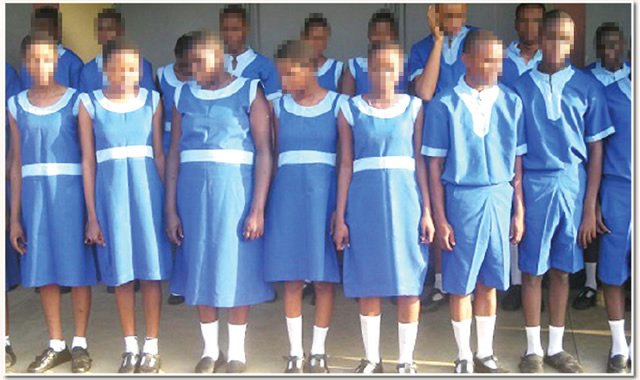
Eight states of the federation have failed to access the N377.07m earmarked for Special Needs Education by the Federal Government through the Universal Basic Education Commission, The PUNCH has learnt.
The fund is lying fallow despite the poor state of special needs schools in Nigeria.
According to the United Nations, about 15 per cent of the world’s population lives with disabilities.
The National Population Commission gave the total number of people living with disabilities in Nigeria as 19 million in its 2018 statistics.
While the Federal Government allocated a special intervention fund, official documents from UBEC revealed that eight states currently did not access N377.07m as of March 7, 2022.
The breakdown showed that in 2009, Ogun and Ondo states did not access N7, 000 each.
Between 2015 and 2016, Edo and Imo states did not access N47, 942,799.68.
In 2017, the commission noted that Edo and Imo states again, failed to access N30, 400,600 each.
The number of states who failed to pay counterpart funds in 2018 increased when the commission noted that Abia, Adamawa, Bauchi, Edo, Imo and Zamfara states did not access N36, 727,914.50 each.
UBEC did not give figures for 2019, 2020 and 2021.
It, however, noted that as of March 7, 2022, a total of N377,070,337.27 was not accessed due to the failure to pay counterpart funding with the state governments of Edo and Imo leading after failing to access N115,071,314.15.
Speaking in an interview with The PUNCH, a special needs education advocate, Yusuf Balogun, noted that the failure of states to access special intervention grants hinders special needs education in the country.
He said, “There is a considerable limit to what advocates or individuals running Non-Governmental Organisations can do independently to ensure that special needs education becomes a thing in Nigeria.
“The failure of states to access these special intervention grants is a core hindrance to thorough, efficient special needs education in the country. Quite a lot of advocates want to intervene; they put in their funds and it gets to a point that strains and pains come.”
Another special needs education advocate and convener, CareerEdu Foundation, Toluwalase Adeniyi, said, “If these states access these funds, they can easily find ways to get equipment, things that will make learning for these children easier.
“Education for special needs is not simple; it is not just about learning ABC. That is why we talk about the quality of the teachers.
“It is a glorified service; there are teachers who want to get involved but the government is not ready to pay much. It is a sector that if not talked about, they (government) might not even remember it.”
So far, only 1,177 full-fledged special needs schools exist in the country with Kano (153), Kaduna (79) and Lagos (75); being the three states having the highest number of special needs schools in the country.
Copyright PUNCH.
All rights reserved. This material, and other digital content on this website, may not be reproduced, published, broadcast, rewritten or redistributed in whole or in part without prior express written permission from PUNCH.
Contact: [email protected]





